Coronavirus: ER doctor details 'travesty' of ill-equipped health workers
Public health officials in the U.S. have continued to stress that worst is yet to come with the coronavirus pandemic, which has claimed the lives of more than 500 people in the country and more than 17,000 people worldwide.
On Monday, Surgeon General Jerome Adams said during an interview with NBC that “this week, it’s going to get bad.” And Dr. Leana Wen, an emergency physician and visiting professor at George Washington School of Public Health, agreed with the surgeon general’s comments but noted that “things have already been bad.”
As the situations becomes worse, ill-equipped health care workers are struggling to keep up.
“When I talked to my colleagues who are on the front lines in New York and San Francisco and Seattle and Boston, just wherever it is that the outbreak has already hit us, it’s clear that we are so underprepared, that our beds are already being filled, that our health care workers are going without personal protective equipment, which is such a travesty,” Wen said on Yahoo Finance’s The Ticker.
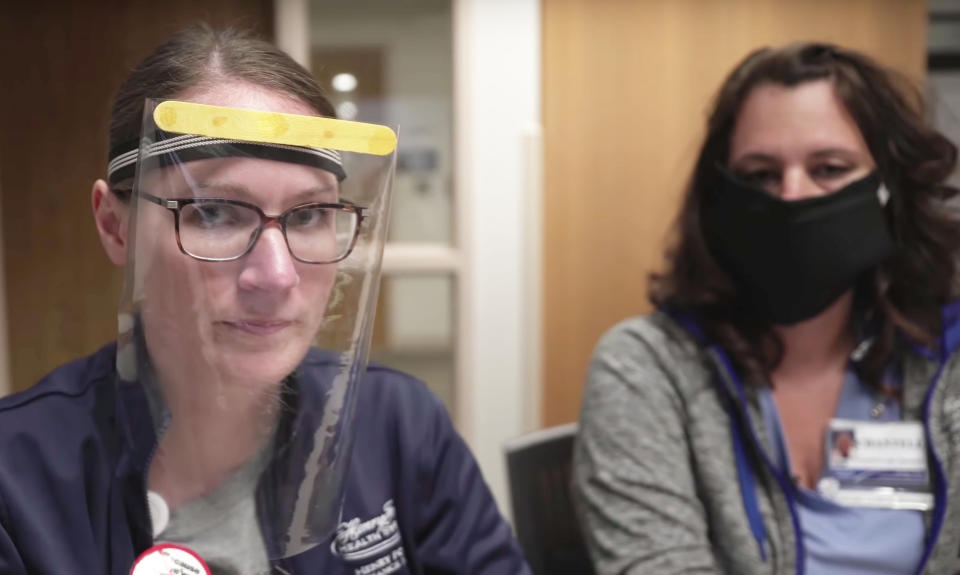
The lack of personal protective equipment is the latest among the numerous challenges that health care workers treating coronavirus patients have had to face. Health care workers are reportedly being asked to reuse disposable masks and gloves or make their own masks. There are severe shortages of N95 masks, which can properly protect these workers treating patients. The CDC said that these workers could use homemade masks, like bandannas or scarves, as a “last resort.”
“I just cannot imagine that we would be in this position now where I have my friends and colleagues begging for masks and goggles and gowns over social media,” Wen said. “I cannot imagine that this is happening here in the U.S. Things are already bad, and we are going to see numbers escalate in the coming weeks and months. Actually, the numbers, as bad as they are now, will seem like a drop in the bucket in just a week or two time.”
‘We need the federal government to step in’
Wen highlighted three areas of need: beds, medical equipment, and staff.
“We need beds because patients are going to need care, so they need intensive care beds, hospital beds, and that’s where hospitals can try to free up as much capacity as they can,” she said. “But we also need the assistance of the federal government, the military to create new hospitals, new field hospitals, which are starting but we need a lot more of that.”
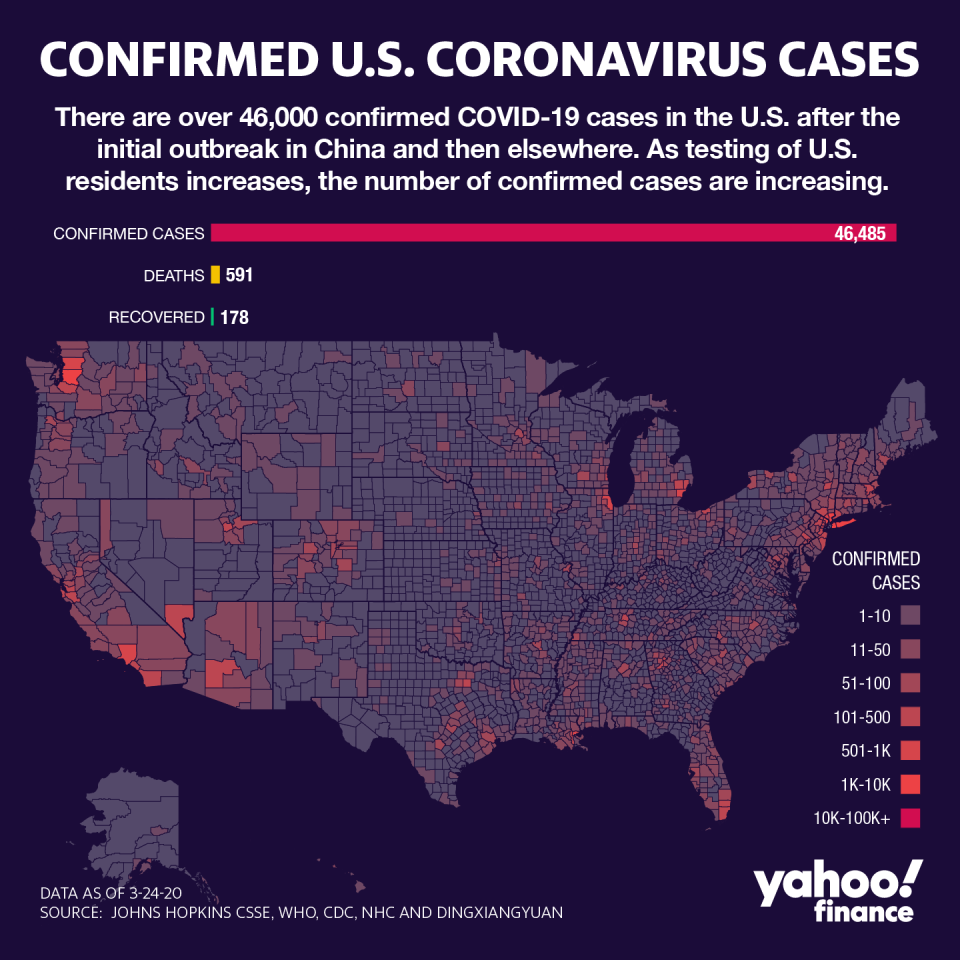
A 1,000-bed Navy hospital ship is currently en route to Los Angeles to help alleviate the strain of the number of coronavirus patients in the area. The U.S. Army Corps of Engineers is also planning on converting more than 10,000 empty hotel and college dorm rooms into hospital rooms to treat patients in New York City.
“We need ventilators, but we also need personal protective equipment,” Wen said. “If our health care workers literally cannot get masks and gowns, not even thinking about the ethical implications, they’re going to get sick. And we’re not going to have the existing staff, much less the new staff that we need. So we absolutely need that equipment.”
Wen called on the federal government to act further to protect health care professionals.
“We need more staff, but we have to protect our existing staff,” she said. “In order to make all this happen, we need the weight of the federal government. This is not just a local or state response. Local and state officials are doing everything they can, but they are stretched to their limit, and that’s why we have a federal government. That’s why we need the federal government to step in and have a national coordinated effort.”

‘This is a pandemic ... we have not seen in our lifetimes’
Although there are efforts by government officials, the private sector is also stepping up to help create masks. Designers and brands like Los Angeles Apparel, Dov Charney, Christian Siriano, and Karla Colletto have said they would help make thousands of masks and gowns for health care workers.
And Apple CEO Tim Cook announced on Twitter that his company would be donating millions of masks for health care workers in the U.S. and Europe. Chinese billionaire Jack Ma also donated 1 million masks, along with 500,000 coronavirus testing kits, to the U.S. to help with the shortfall.
“We have a very serious situation,” Wen said. “State and local officials have stepped up in major ways during this epidemic, and I hope that the federal government will also follow suit because this is a national emergency. I mean, this is a pandemic, the likes of which we have not seen in our lifetimes, and we can’t just have individual efforts here.”
On Saturday, Vice President Mike Pence stated that hundreds of millions of these masks had been ordered for health care facilities but didn’t say when they would arrive.
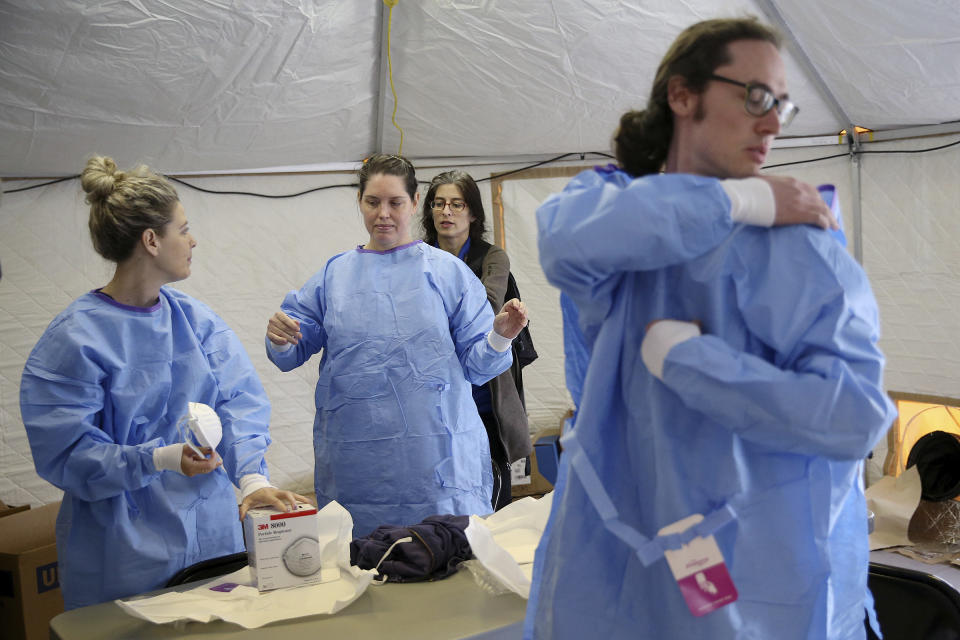
The importance of social distancing
In the meantime, there are things that the rest of the country can do to try to ease the burden of health care workers. One of the biggest ways is through social distancing.
Social distancing is defined as “deliberately increasing the physical space between people to avoid spreading illness” by Johns Hopkins Medicine. Examples include working from home instead of in the office, talking to friends and family through video calls instead of in person, and taking classes online instead of in school.
“We are not powerless here,” Wen said. “There are individual actions we can take when it comes to social distancing, protecting ourselves and our families, good hand and face hygiene. All these are action steps that we can take that will help to change the trajectory of this disease and whether this crisis is an emergency or turns into a catastrophe.”

This helps to “flatten the curve.” By social distancing, there is less of a chance of contracting the virus. With less people getting the virus, there won’t be as many people filling up hospital beds, and therefore overwhelming health care professionals.
“Think about a forest fire — we are in the middle of this fire,” she said. “We’re seeing that the fire is much faster. It’s going much faster than we have the equipment to put it out at the moment. We’re seeing it killing dozens of people, soon to be hundreds and then thousands and tens of thousands of people. Now is not the right time for us to be taking our foot off the gas pedal. We need to be going full force and doing everything we can, especially because so many people are not even taking this pandemic as seriously as they should be.”
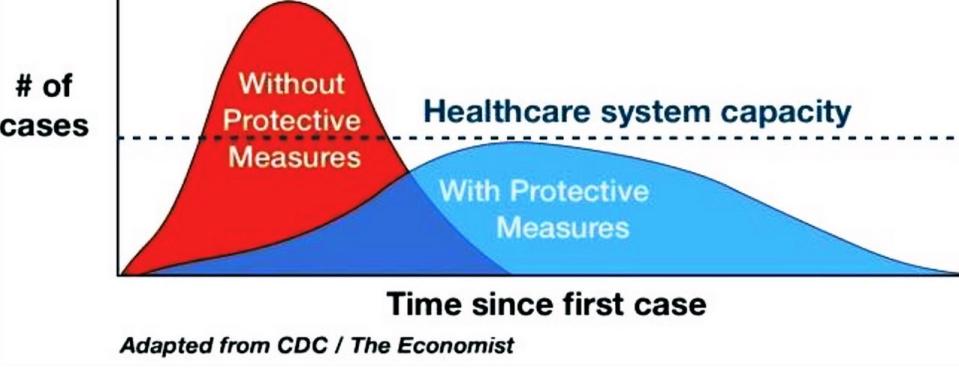
As President Donald Trump is increasingly pushing back against health care experts, Wen called for more restrictive action to slow the spread of the outbreak.
“Schools are shut,” Wen added. “So many businesses are closed, but people are still having play dates. They’re still getting together to play basketball. These individual actions make a big difference, and I’m afraid that if there is messaging coming from the federal government saying, ‘let’s let up on some of these restrictions,’ it’s going to make this fire so much worse than it needs to be.”
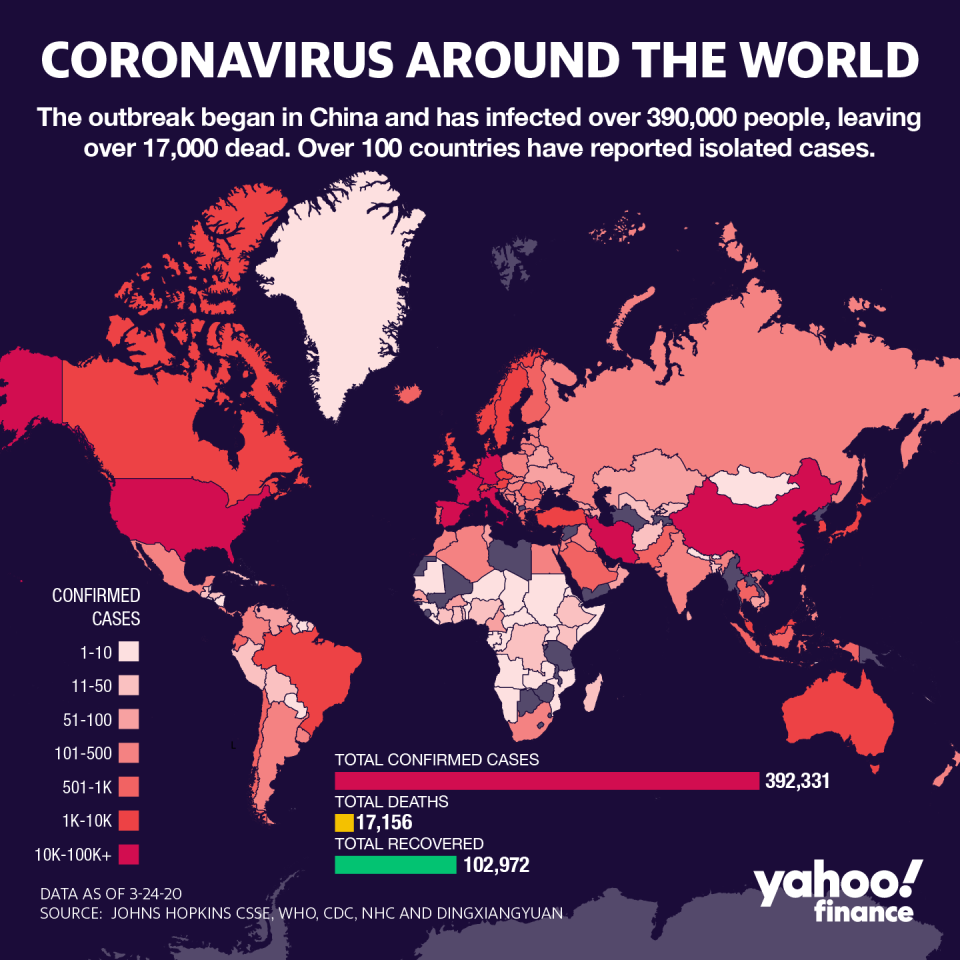
Wen stressed that she does “understand” the economic trade offs, but said this isn’t the time to ease up on restrictions.
“We’re talking about the blood of tens of thousands, if not more, of our citizens on our hands,” she said, adding: “We keep on talking about this as a war against the virus. Well, then we need wartime mobilization. We need the president to put into effect the Defense Production Act. We need every resource of the federal government because we can’t do this on our own. And why is this even called a national emergency if we’re not putting the full weight of our national resources and political power behind it?”
Adriana is a reporter and editor for Yahoo Finance. She can be reached at [email protected]. Follow her on Twitter @adrianambells.
READ MORE:
Former CDC official on coronavirus: The government response needs to catch up with the crisis
Coronavirus pandemic shows 'dysfunctionality' of US health care: Bernie Sanders
Former Obama official on coronavirus: 'Both the president and Congress are utterly failing'
Read the latest financial and business news from Yahoo Finance
Follow Yahoo Finance on Twitter, Facebook, Instagram, Flipboard, SmartNews, LinkedIn, YouTube, and reddit.
